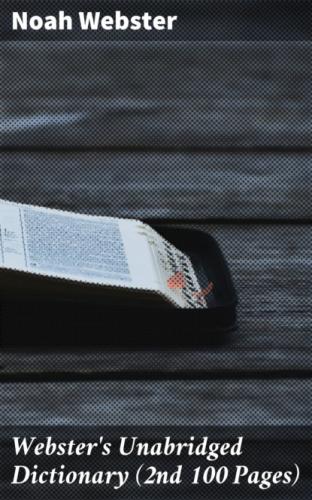3. Aside; off; in another direction.
The axis of rotation is inclined away from the sun.
Lockyer.
4. From a state or condition of being; out of existence.
Be near me when I fade away.
Tennyson.
5. By ellipsis of the verb, equivalent to an imperative: Go or come ~; begone; take ~.
And the Lord said … Away, get thee down.
Exod. xix. 24.
6. On; in continuance; without intermission or delay; as, sing away. [Colloq.]
µ It is much used in phrases signifying moving or going from; as, go away, run away, etc.; all signifying departure, or separation to a distance. Sometimes without the verb; as, whither away so fast ? ½Love hath wings, and will away.¸ Waller. It serves to modify the sense of certain verbs by adding that of removal, loss, parting with, etc.; as, to throw away; to trifle away; to squander away, etc. Sometimes it has merely an intensive force; as, to blaze away.
Away with, bear, abide. [Obs. or Archaic] ½The calling of assemblies, I can not away with.¸ (Isa. i. 13), i.e.,½I can not bear or endure [it].¸ Ð Away with one, signifies, take him away. ½Away with, crucify him.¸ John xix. 15. Ð To make away with. (a) To kill or destroy. (b) To carry off.
<—p. 107—>
AÏway¶Ðgo¶ing (?), a. (Law) Sown during the last years of a tenancy, but not ripe until after its expiration; Ð said of crops.
Wharton.
AÏway¶ward (?), adv. Turned away; away. [Obs.]
Chaucer.
Awe (?), n. [OE. a?e, aghe, fr. Icel. agi; akin to AS. ege, ?ga, Goth. agis, Dan. ave chastisement, fear, Gr. ? pain, distress, from the same root as E. ail. ?3. Cf. Ugly.] 1. Dread; great fear mingled with respect. [Obs. or Obsolescent]
His frown was full of terror, and his voice
Shook the delinquent with such fits of awe.
Cowper.
2. The emotion inspired by something dreadful and sublime; an undefined sense of the dreadful and the sublime; reverential fear, or solemn wonder; profound reverence.
There is an awe in mortals' joy,
A deep mysterious fear.
Keble.
To tame the pride of that power which held the Continent in awe.
Macaulay.
The solitude of the desert, or the loftiness of the mountain, may fill the mind with awe Ð the sense of our own littleness in some greater presence or power.
C. J. Smith.
To stand in awe of, to fear greatly; to reverence profoundly.
Syn. Ð See Reverence.
Awe (?), v. t. [imp. & p. p. Awed (?); p. pr. & vb. n. Awing.] To strike with fear and reverence; to inspire with awe; to control by inspiring dread.
That same eye whose bend doth awe the world.
Shak.
His solemn and pathetic exhortation awed and melted the bystanders.
Macaulay.
AÏwea¶ried (?), p. p. Wearied. [Poetic]
AÏwea¶ry (?), a. [Pref. aÏ + weary.] Weary. [Poetic] ½I begin to be aweary of thee.¸
Shak.
AÏweath¶er (?), adv. [Pref. aÏ + weather.] (Naut.) On the weather side, or toward the wind; in the direction from which the wind blows; Ð opposed to alee; as, helm aweather !
Totten.
AÏweigh¶ (?), adv. [Pref. aÏ + weigh.] (Naut.) Just drawn out of the ground, and hanging perpendicularly; atrip; Ð said of the anchor.
Totten.
Awe¶less (?), a. See Awless.
Awe¶some (?), a. 1. Causing awe; appalling; awful; as, an awesome sight.
Wright.
2. Expressive of awe or terror.
An awesome glance up at the auld castle.
Sir W. Scott.
Awe¶someÏness, n. The quality of being awesome.
Awe¶Ðstrick·en (?), a. AweÐstruck.
Awe¶Ðstruck· (?), a. Struck with awe.
Milton.
Aw¶ful (?), a. 1. Oppressing with fear or horror; appalling; terrible; as, an awful scene. ½The hour of Nature's awful throes.¸
Hemans.
2. Inspiring awe; filling with profound reverence, or with fear and admiration; fitted to inspire reverential fear; profoundly impressive.
Heaven's awful Monarch.
Milton.
3. Struck or filled with awe; terrorÐstricken. [Obs.]
A weak and awful reverence for antiquity.
I. Watts.
4. Worshipful; reverential; lawÐabiding. [Obs.]
Thrust from the company of awful men.
Shak.
5. Frightful; exceedingly bad; great; Ð applied intensively; as, an awful bonnet; an awful boaster. [Slang]
Syn. Ð See Frightful.
Aw¶fulÏly, adv. 1. In an awful manner; in a manner to fill with terror or awe; fearfully; reverently.
2. Very; excessively. [Slang]
Aw¶fulÏness, n. 1. The quality of striking with awe, or with reverence; dreadfulness; solemnity; as, the awfulness of this sacred place.
The awfulness of grandeur.
Johnson.
2. The state of being struck with awe; a spirit of solemnity; profound reverence. [Obs.]
Producing in us reverence and awfulness.
Jer. Taylor.
AÏwhape¶ (?), v. t. [Cf. whap blow.] To confound; to terrify; to amaze. [Obs.]
Spenser.
AÏwhile¶ (?), adv. [Adj. a + while time, interval.] For a while; for some time; for a short time.
AÏwing¶ (?), adv. [Pref. aÐ + wing.] On the wing; flying; fluttering.
Wallace.
Awk (?), a. [OE. auk, awk (properly) turned away; (hence) contrary, wrong, from Icel. ”figr, ”fugr, afigr, turning the wrong way, fr. af off, away; cf. OHG. abuh, Skr. ap¾c turned away, fr. apa off, away + a root ak, a?k, to bend, from which come also E. angle, anchor.]
1. Odd; out of order; perverse. [Obs.]
2. Wrong, or not commonly used; clumsy; sinister; as, the awk end of a rod (the but end). [Obs.]
Golding.
3. Clumsy in performance or manners; unhandy; not dexterous; awkward. [Obs. or Prov. Eng.]
Awk, adv. Perversely; in the wrong way.
L'Estrange.
Awk¶ly, adv. 1. In an unlucky (leftÐhanded) or perverse manner. [Obs.]
Holland.
2. Awkwardly. [Obs.]
Fuller.
Awk¶ward (?), a. [Awk + Ïward.] 1. Wanting dexterity in the use of the hands, or of instruments; not dexterous; without skill; clumsy; wanting ease, grace, or effectiveness in movement; ungraceful; as, he was awkward at a trick; an awkward boy.
And dropped an awkward courtesy.
Dryden.
2. Not easily managed or effected; embarrassing.
A long and awkward process.
